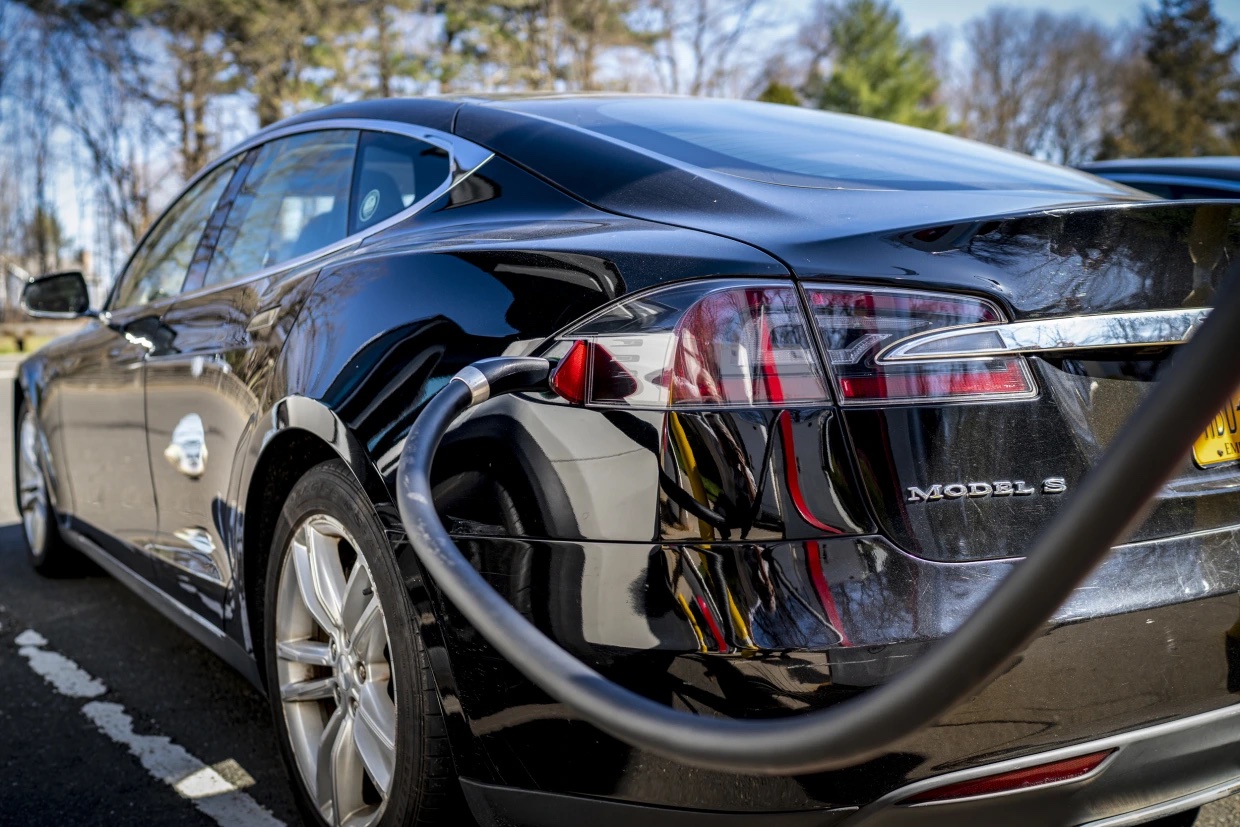
c/o Robert Nickelsberg, Getty Images
Director of Utilities and Infrastructure Andrew Plotkin announced in an all-campus email on Wednesday, Oct. 25 that the University installed an additional 16 electric vehicle (EV) charging stations across campus over the summer, bringing the total number of stations to 30. Of the 16 new units, 10 are Level 2 stations, which fully charge a car in three and eight hours and will charge $0.25 per kilowatt-hour (kWh), while the remaining are the faster Direct Current Fast Chargers (also called Level 3 chargers), which only take 30–60 minutes to fully charge a car and will cost $0.40 per kWh.
In addition to these new chargers, preexisting fee-free Level 2 chargers are still available at Freeman Athletic Center (Q-Lot) and the Jeanine Basinger Center for Film Studies (T-Lot). Other charging locations include the Office of Admission (E-Lot), Exley Science Center (D-Lot), William Street (W-Lot), 55 High St. (W-Lot), Long Lane, and behind 253 Pine St.
The University will also charge a nominal fee if the vehicle is left in a charging spot for more than two hours after it has completed charging. This is intended to ensure that spots are available to everyone who might need one.
The decision to install more charging stations resulted from an initiative created in July 2021 by the Connecticut Public Utilities Regulatory Authority (PURA) to support the installation of EV charging infrastructure across the state. In the University’s case, the program is administered by Eversource, a Connecticut electric utility company. Rebates for the installation of chargers were made available starting Jan. 1, 2023.
Eversource covered 70% of the cost of installing the new stations, while the remaining 30% came out of the University’s Utilities and Infrastructure Capital budget. Although installation was covered without an additional fee for electric vehicle owners, the PURA program required a specific type of networked charger—a station that connects remotely to other stations—that charges a yearly management fee. The recently implemented per-kWh fee aims to cover this annual fee as well as the price of electricity.
“The newly installed chargers are much higher capacity than anything else on campus, and therefore can transfer a lot of electricity in a short period of time,” Plotkin wrote in an email to The Argus. “Given the relatively high quantity of chargers, the cost of supplying electricity is non-trivial.”
The University is currently installing eight more chargers: Four will be at L-Lot near the Physical Plant building and four will be in B-Lot behind the Public Safety building. There are no concrete plans to install additional chargers in the future or to modify the fee to use the chargers.
“We don’t anticipate any changes in pricing in the near future,” Plotkin wrote. “If electricity prices change significantly in the coming years, we may need to re-evaluate the pricing structure.”
Users can pay at the charging station using the free FLO app, available on both Google Play Store and Apple App Store, or by purchasing a FLO card. One student emphasized that the low cost of EV charging on campus did not feel burdensome.
“It’s only $4 [per charge],” Jane Potee ’26 said. “I’m happy to pay that amount so that we can continue to have chargers, and it is much less than gas.”
Potee also praised the increased presence of electric chargers on campus.
“I haven’t heard of any college campus with this many chargers,” Potee said. “It’s a great way to promote electric vehicles.”
Rose Chen contributed to reporting.
Carolyn Neugarten contributed to reporting.
Leo Bader can be reached at lbader@wesleyan.edu.